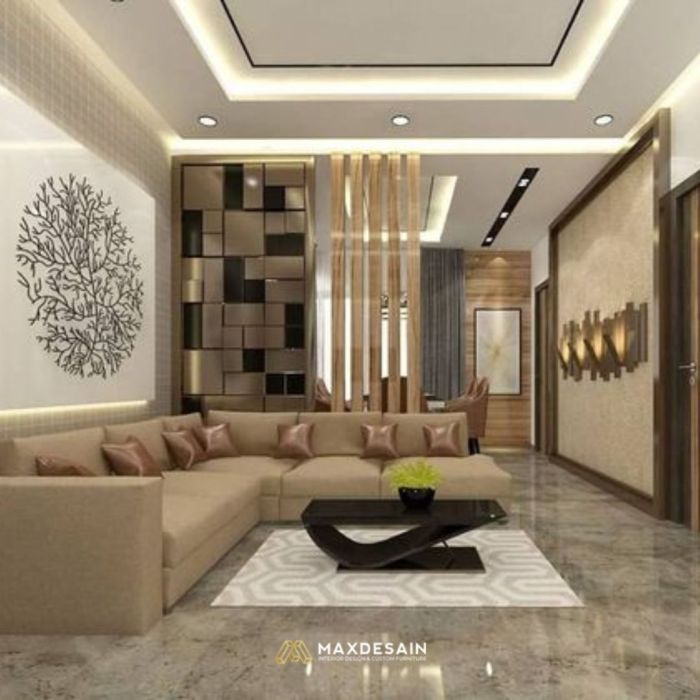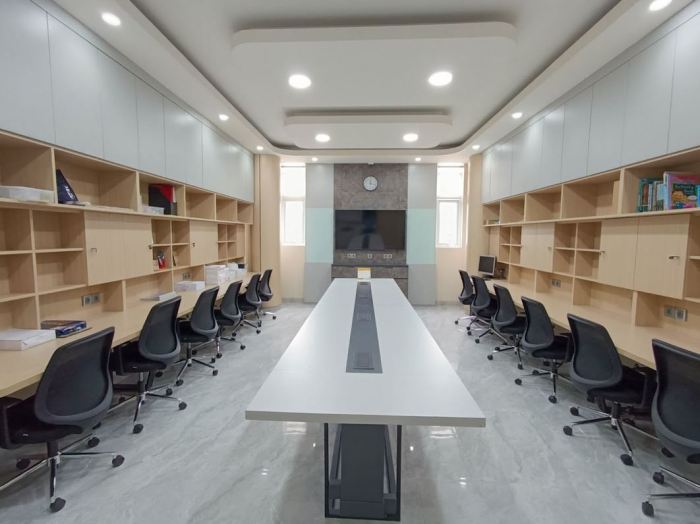The Ultimate Guide to Interior Contractors: Everything You Need to Know

Embark on a journey through the world of interior contractors, discovering the key aspects of their role, services, and challenges. This comprehensive guide offers valuable insights for anyone interested in the field.
From qualifications to tools used, this guide covers all you need to know about interior contractors and their vital contributions to the design and construction industry.
What is an interior contractor?
An interior contractor is a professional responsible for overseeing and managing the execution of interior design projects. They play a crucial role in ensuring that the design vision for a space is brought to life efficiently and effectively.Interior contractors are tasked with a variety of responsibilities, including coordinating with subcontractors, managing budgets and timelines, obtaining necessary permits, and ensuring that all work meets building codes and regulations.
They work closely with interior designers, architects, and clients to translate design concepts into reality.
Tasks performed by interior contractors
- Supervising and coordinating construction activities
- Procuring materials and supplies
- Hiring and managing subcontractors
- Ensuring compliance with building codes and regulations
- Managing project timelines and budgets
Importance of hiring a qualified interior contractor
It is essential to hire a qualified interior contractor for a project to ensure that the design vision is executed seamlessly and within the specified budget and timeline. A skilled interior contractor brings expertise, experience, and industry knowledge to the project, helping to avoid costly mistakes and delays.
By hiring a qualified interior contractor, clients can have peace of mind knowing that their project is in capable hands and will be completed to the highest standards.
Qualifications and skills of an interior contractor

When it comes to being a successful interior contractor, having the right qualifications and skills is crucial. Let's explore the necessary qualifications, certifications, and key skills that are essential for excelling in this profession.
Necessary Qualifications and Certifications
- A degree in interior design or a related field is typically required to work as an interior contractor.
- Obtaining certifications such as the National Council for Interior Design Qualification (NCIDQ) can enhance credibility and demonstrate expertise in the field.
- Knowledge of building codes, regulations, and safety standards is essential to ensure compliance with legal requirements.
Key Skills Required
- Creativity: Interior contractors need to have a keen eye for design and the ability to come up with innovative solutions for spaces.
- Communication: Strong communication skills are crucial for effectively liaising with clients, suppliers, and subcontractors.
- Project Management: The ability to manage timelines, budgets, and resources efficiently is essential for successful project completion.
- Attention to Detail: Being detail-oriented helps ensure that every aspect of the design and construction process is carefully executed.
Residential vs. Commercial Interior Contracting
| Residential Interior Contracting | Commercial Interior Contracting |
|---|---|
| Emphasis on creating functional and aesthetically pleasing living spaces for individuals or families. | Focus on designing spaces that cater to the needs of businesses, such as offices, retail stores, or restaurants. |
| Requires understanding of personal preferences and lifestyle of clients. | Involves adherence to branding guidelines and corporate requirements. |
| May involve smaller-scale projects with more personalized touches. | Often requires working on larger projects with strict regulations and standards. |
Interior contractor services
Interior contractors offer a wide range of services to help clients transform their living or working spaces into functional and aesthetically pleasing environments. These professionals work closely with clients to understand their needs and preferences, providing customized solutions to enhance the interior of a space.
Range of services
- Space planning and design
- Interior decorating
- Color consultation
- Lighting design
- Furniture selection and arrangement
- Custom cabinetry and built-in solutions
- Flooring and wall treatments
- Window treatments
- Project management and coordination
Common projects
- Kitchen remodels
- Bathroom renovations
- Living room makeovers
- Office space design
- Retail store interiors
- Restaurant and hospitality spaces
- Residential and commercial interior upgrades
Collaborating with clients
Interior contractors work closely with clients to understand their vision, preferences, and budget constraints. They conduct initial consultations to assess the space and discuss the client's goals. Throughout the project, they provide regular updates, seek feedback, and make adjustments as needed to ensure the final result meets the client's expectations.
By collaborating with clients every step of the way, interior contractors deliver personalized interior solutions that reflect the client's unique style and needs.
Tools and technologies used by interior contractors
Interior contractors rely on a variety of tools and technologies to effectively plan, design, and execute interior projects. These tools help streamline processes, improve accuracy, and enhance overall project efficiency.
Essential Tools for Interior Contractors
- Measuring tape: Essential for taking accurate measurements of spaces and furniture.
- Level: Ensures that items are installed straight and aligned properly.
- Power drill: Used for installing fixtures, hardware, and other elements.
- Paint sprayer: Speeds up the painting process and provides a smooth finish.
- Sander: Helps in preparing surfaces for painting or finishing.
Role of Technology in Interior Contracting
Technology has revolutionized the interior contracting industry by introducing advanced software and tools that aid in design, project management, and communication. Interior contractors now have access to 3D modeling software, project management platforms, and virtual reality tools that enhance client presentations and project visualization.
Benefits of Advanced Software in Interior Design
- Enhanced visualization: 3D modeling software allows clients to see realistic renderings of their space before the work begins.
- Improved accuracy: Advanced software helps in precise measurements, material calculations, and budget estimations.
- Efficient project management: Project management platforms assist in scheduling, task assignments, and progress tracking, leading to better project outcomes.
- Streamlined communication: Technology enables seamless communication between contractors, clients, and suppliers, reducing errors and delays.
Challenges faced by interior contractors

Interior contractors often face various challenges during projects that can affect timelines, budgets, and client satisfaction. It is essential for interior contractors to be prepared to address these challenges effectively to ensure successful project completion.
Budget Constraints
Budget constraints are a common challenge faced by interior contractors. To overcome this challenge, contractors can implement the following strategies:
- Clearly define the scope of work and budget with the client before starting the project to avoid any misunderstandings.
- Source materials and resources efficiently to minimize costs without compromising on quality.
- Regularly monitor and track expenses throughout the project to stay within budget limits.
- Communicate openly with the client about any budget adjustments or additional costs that may arise during the project.
Changes in Design Trends and Client Preferences
Navigating changes in design trends and client preferences can be another significant challenge for interior contractors. To address this challenge, contractors can:
- Stay updated on current design trends by attending industry events, workshops, and seminars.
- Regularly communicate with clients to understand their evolving preferences and make necessary adjustments to the project.
- Collaborate with a team of designers and architects to brainstorm innovative solutions that align with both design trends and client preferences.
- Be flexible and adaptable to changes throughout the project while ensuring the final result meets the client's expectations.
Building relationships in the interior contracting field
Networking and building relationships play a crucial role in the interior contracting industry. Establishing strong connections with suppliers, clients, and other professionals can lead to numerous benefits for interior contractors.
Tips for interior contractors to establish strong connections:
- Attend industry events and conferences to meet potential clients and suppliers.
- Utilize social media platforms to showcase your work and connect with industry professionals.
- Join professional organizations and networking groups to expand your contacts.
- Provide excellent customer service to build trust and loyalty with clients.
- Collaborate with other professionals on projects to expand your network and expertise.
Positive relationships contribute to the success and growth of an interior contracting business:
- Repeat business and referrals from satisfied clients lead to a steady stream of projects.
- Strong relationships with suppliers can result in better pricing and access to quality materials.
- Collaboration with other professionals can lead to innovative solutions and new opportunities.
- Positive word-of-mouth and reputation in the industry can attract new clients and projects.
Closure

In conclusion, interior contractors play a crucial role in turning design dreams into reality. By understanding their responsibilities, skills, and challenges, you gain a deeper appreciation for the expertise they bring to every project. Dive into the world of interior contracting and unlock a realm of creativity and innovation.
General Inquiries
What qualifications are needed to become an interior contractor?
To become an interior contractor, you typically need a degree in interior design or a related field, along with relevant certifications such as NCIDQ.
What are some common challenges faced by interior contractors?
Interior contractors often encounter challenges such as tight budgets, changing design trends, and meeting client expectations while staying within project constraints.
How has technology impacted the interior contracting industry?
Technology has revolutionized interior contracting, providing advanced software for design and project management that enhances efficiency and precision in delivering interior solutions.

